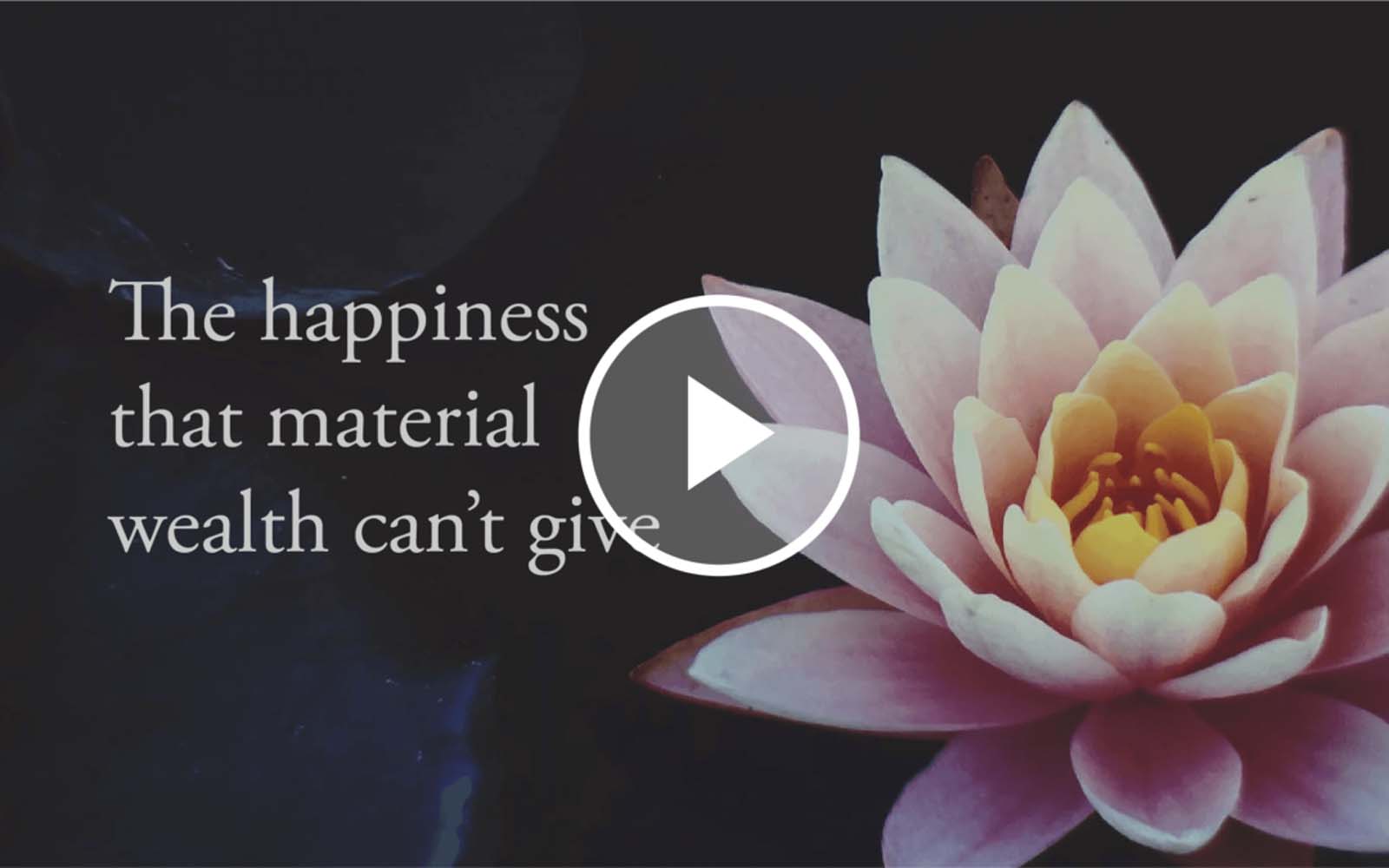
Squid Game! 3 Dhamma Takeaways
Beyond all the violence and nail-biting scenes of Squid Game, the show taught me some Dhamma lessons while I was watching it. Here are my 3 Dhamma takeaways!
One barely escapes Squid Game, both in the show and on social media.
A browse through social media will show scores of Squid Game memes, advertisements, and analyses on it.
Since its Netflix’s release, Squid Game has become the #1 show in over 90 countries. For the uninitiated, Squid Game depicts a story of people who are heavily financially in debt. They compete for 45.6 billion won (~52 million SGD) by taking part in six Korean kids’ games. However, if participants lose any of the games, they risk losing their lives. Intense.
Here are 3 Dhamma takeaways that you may have missed!
SPOILER WARNING! Jump to ‘Wise Steps’ if you do not wish to get these small spoilers!
Life is Impermanent and rarely linear
Sang-woo is the childhood friend of Squid Game’s main character (Gi-hun). A naturally bright student who enrolled in one of the top universities (as Gi-hun constantly reminds every contestant), Sang-woo gets a job as an investment banker, an occupation held in high regard in modern society.
Saebyeok (fellow contestant)
Photo Credits: Netflix
Sang-woo’s character reveals the power of Anicca (Pali for “Impermanence” in Buddhism). The show highlights his decline from success to states of sorrow and anger.
What’s crazy about watching Sang-woo is that you can see yourself or even close friends in him.
Sang-woo reminds you of that one friend who is a perfect scholar. The one who studies hard. The one who gets into a top university and has a great job. I shudder at the thought of knowing the number of potential ‘Sang-woos’ in my life.
For these perceptibly fortunate folks, life seems like an upward trajectory, where the only thing permanent is their success.
Alas, the eight worldly winds, as taught by the Buddha do not spare Sang-woo from impermanence. Just like any of us.
Sang-woo’s greed and giddiness with success lead him to steal money from clients and bet it on the stock market. In desperation, he uses his mother’s little shop as financial collateral. This act of deceit spirals Sang-woo into further run-ins with the law.
Once Sang-woo joins the game, we see his transformation accelerate.
He evolves from a calm, caring man into a brutal opportunist.
In his final act of transformation, he shockingly betrays a kind-hearted contestant. This makes you lose all support for Sang-woo to win the game.
Sang-woo’s decline reminded me that life is hardly linear. Life is rarely set in stone with change as the only constant. As we look towards ‘change’ in terms of happier emotional states or ‘even better’ material possessions, we must remember that change is a double-edged sword.
A state can change for better or worse — we cannot be sure.
A balanced mind unshaken by the eight worldly winds will bring the greatest peace and clarity in times of trouble and happiness. Otherwise, we may be unprepared for the red and green lights that lie await us.
Red light, Green light. Staying Present
The first game that contestants play is the Red Light, Green Light game. Contestants have to cross the finishing line within five minutes. They can only move when the doll signals a ‘Green Light’. If the contestants move when it is a red light (which can happen suddenly), they lose (die).
Those who move are eliminated.
Credits: Netflix
From watching all that running, my Dhamma takeaway was that everyone has their own pace in life.
Those who know their pace and stay present win the game (mostly). The person who hastily runs towards the line, despite the red light, faces elimination. Those frozen with fear also lose the game. In essence: move too slow or too fast? You lose.
Knowing your own pace and ability to pause is crucial in winning the game and the game of life.
Reflecting deeper, some contestants do try their best at the game but still lose. This part reminded me of the times when we did our best to follow the ‘rules of life’ such as working hard or eating healthily to live a good long life. We may think we have it sorted, the green and red lights of our lives.
However, life is uncertain. Our hard work turns into a missed promotion. Our healthy lifestyle can still result in early-stage cancer.
Reflecting thus, the game was a reminder that there is sometimes no visible order to the world. No ‘order’ to the way we want it to be. It is better to stay present and treasure life as we never know when we will face a sudden ‘red light’ in our lives.
The three forms of intoxicants (youth, health, and life) make us think the green light will go on and on and on. We must remind ourselves not only to constantly go at our pace but also to not get kidnapped by a false sense of security that we know it all.
Once we win the game at our own pace, would we know the difference between happiness and excitement?
Photo Credits: Netflix
Happiness vs Excitement
What happens when you have all the material wealth you ever wanted? What happens next?
These questions form quite a bizarre future for us to grapple with, especially in the workforce where we work towards the idea of financial freedom. What’s next?
The show replies to this existential question through the character of ‘The Host’.
The Host created the Squid Game, an annual game hosted across different countries, where contestants compete for prize money that grows with elimination by death.
What could drive The Host to commit such a sadistic act?
The Host was in the financial industry and accumulated a lot of wealth. He reached a point where his life had no more excitement.
“Do you know what is the common ground between someone without money and having too much money? Life is just not fun! If you have too much money you can buy, eat and drink as much as you want, but at some point it gets boring. “ – The Host
The Host highlighted that even when he was extremely wealthy, he and his associates (the VIPs) could not find joy in living anymore. Hence, they created the game to get a different level of excitement (from watching people kill one another). This excitement was something they could never get in the material world.
Photo Credits: Netflix
The Host confused excitement for happiness — this was another key Dhamma lesson that I took away. I wondered how many times I made the same mistake of taking both as identical.
While going on a Youtube binge can be exciting, I rarely find myself in a happy state after the binge. A question of ‘What now?’ ensues. Happiness is not found. Rather, I find eye bags and regrets on the following day.
So what exactly is the difference?
Excitement relies on external stimuli to drive a temporary surge of positive feelings. Happiness comes from one’s own internal world. Happiness is not reliant on external conditions for its creation or sustenance.
Not knowing the difference, The Host was unable to see the simple joy of loved ones or to grasp the idea of ‘enough’. I couldn’t help but feel a sense of sadness at this character’s view of the world: a world without kindness and only bleak self-interest.
How could The Host have done better?
The Buddha mentions that there are four types of happiness that can be enjoyed by laypeople.
Namely, they are the happiness of ownership, using wealth, debtlessness, and blamelessness.
Regarding wealth, Buddha says ‘It’s when a gentleman uses his legitimate wealth and makes merit with it. When he reflects on this, he’s filled with pleasure and happiness.’
The idea of making merit (beneficial acts towards oneself and others) and of reflecting is crucial for happiness. Think of the last time we gave our money to a person or cause in need, did you notice a smile in your heart? It is such moments of reflection that can be painfully lost if we become jaded with the material world around us.
By learning about Buddha’s four types of happiness, we can make better choices and avoid being taken hostage by the allure of excitement.
Closing Thoughts
Squid Game was a fulfilling series with many moments when you paused either in fear or in shock.
It forced the viewer to think about what kind of person you would be if you were in that situation.
We reflected on the impermanence of our conditions and how we can be ‘indebted’ to them if we were not careful like Sang-woo. We also learnt to go at our own pace in life, walking the Middle Path even when others are going at extreme ends. Lastly, we were forced to ask ourselves: what is the true difference between excitement and happiness in life. Which matters more?
One barely escapes Squid Game, both in the show and on social media. Can we also escape the pitfalls of life that Buddha warns us about?
Wise Steps:
- Reminding ourselves that life is full of change keeps us on our toes to never take situations and relationships as permanent
- Stay present and learn to let go of grudges because death comes unexpectedly. In this life, whether tomorrow is our green or red light…nobody knows
- Recognise the differences between happiness and excitement. The wise know what brings inner joy with little reliance on external conditions

